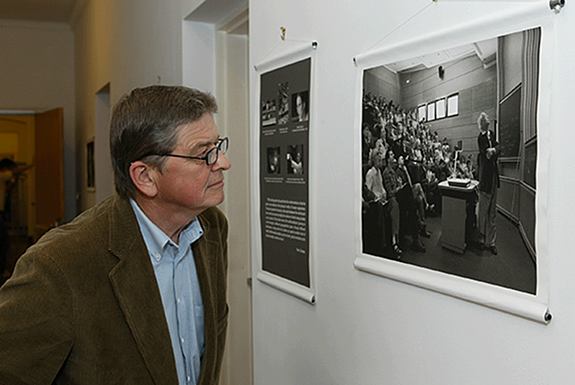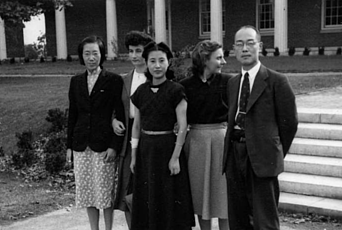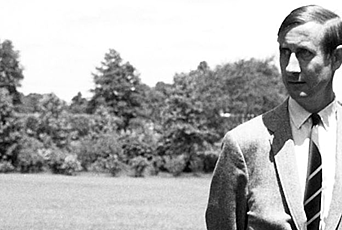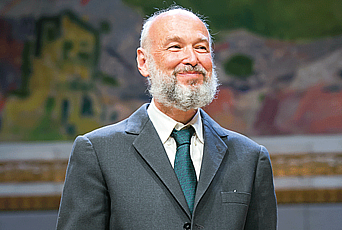IAS Celebrates Fiftieth Anniversary of IHÉS

The Institute’s association with IHÉS predates its founding in 1958. Institute Director (1947–66) J. Robert Oppenheimer played a significant role in the establishment of IHÉS, one of the first major European institutions modeled on the Institute and on founding Director Abraham Flexner’s view that the research that has the most profound impact on knowledge and understanding is that driven by curiosity rather than the prospect of immediate application.
Oppenheimer’s papers, which are available for consultation at the Library of Congress, contain voluminous correspondence relating to IHÉS and, in particular, with founding Director Léon Motchane, who visited IAS in 1948. There are dozens of detailed letters from Motchane seeking advice, particularly in relation to appointments. Oppenheimer was, from the earliest days, a member of the Scientific Committee of IHÉS and served on its American fundraising committee when it was formed in 1964.
With the help of Oppenheimer and with financial support from several large companies, Motchane succeeded in launching a European counterpart of IAS in 1958. Until his death in 1967, Oppenheimer was an important adviser to Motchane in its development. On September 20, 1959, the New York Times reported Oppenheimer’s efforts under the headline “Oppenheimer to Assist New French Institute.” Oppenheimer’s own education included advanced study in Europe, and he was keen to facilitate scholarly exchange of the type he had benefited from before World War I and World War II resulted in the influx of eminent scientists to the United States. In a December 17, 1959, letter to M. E. Bauer of the Cabinet du Ministre de L’Éducation Nationale, in which he suggested that the French government should support IHÉS (the French Ministry of Higher Education and Research has been supporting IHÉS since 1964), Oppenheimer wrote:
“With the increasing magnitude, complexity, and busyness of scientific progress in all fields, and with the growth of educational systems which corresponds to a new development in the world’s history, university chairs no longer necessarily offer that opportunity for seclusion, and for the most difficult and intensive intellectual effort, which was once their special hallmark. For this reason, places of retreat, which are in effect places for advance, have been brought into being, as has our Institute. These serve multiple functions, but basic to them all is an opportunity for much more intensive concentration on study and research than is elsewhere possible. It is for me a common remark to be told by a member, ‘I think about mathematical problems two or three times as many hours a week than I do anywhere else.’ It needs hardly to be stressed that these experiences are helpful to the universities and institutions of learning to which our visitors return; and that they are passed on in appropriate form to the students whom they are teaching and training. For these reasons, and because in the experimental studies of nature adequate provision is made by other means, institutes for advanced study modeled in some measure or another along the lines of the Princeton Institute are and will multiply throughout the western world.”
Oppenheimer’s view was prescient. “The great growth in the number of institutes for advanced study accelerating now, particularly in the last couple of decades, all over the world is a powerful testimony to their perceived value,” Institute Director Peter Goddard said at the event. “But our two institutes will always be linked because of our distinguished history and achievements, because of the excellence of our permanent faculty, and because of the tranquility and the true intellectual freedom that we are able to offer.”
The last letter in Oppenheimer’s file is one in which he expressed his regret that his health would prevent him from attending the meeting of the IHÉS fundraising committee held on January 23, 1967. Oppenheimer died less than a month later. Earlier, Motchane had written to Oppenheimer about visiting the United States: “There is no doubt that I come principally to see you, and, like every year, have two or three good conversations with you. By discussing with you the problems that we share, by talking in all friendliness of things and men––because the Institute is a human affair—by listening to you, I succeed in finding my course.” ■


